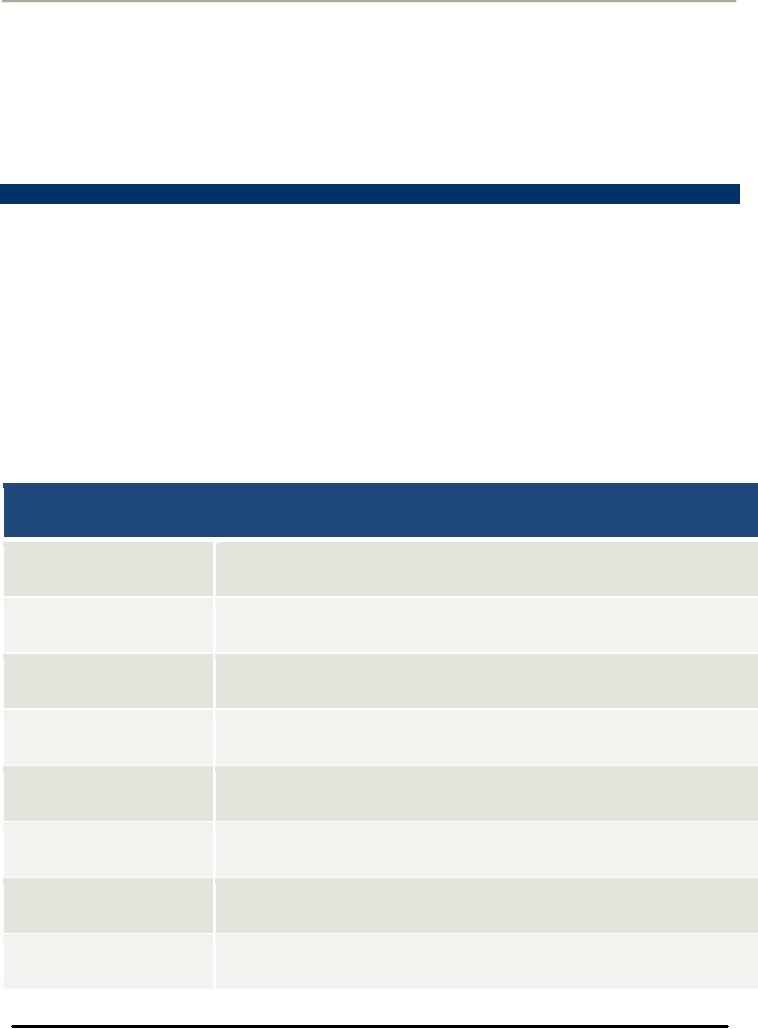 |
CONSUMER PERSONALITY, TRAIT THEORY AND SELF IMAGES |
| << UNDERSTANDING PERSONALITY CHAPTER 5: INDIVIDUAL DETERMINANTS OF CONSUMER BEHAVIOR |
| CONSUMER MOTIVATION:Needs, Goals, Generic Goals >> |

Consumer
Psychology (PSY -
514)
VU
LESSON29
CONSUMER
PERSONALITY, TRAIT THEORY AND
SELF IMAGES
CHAPTER
5: INDIVIDUAL DETERMINANTS OF CONSUMER
BEHAVIOR
Understanding:
�
Consumer
purchase as a reflection of Consumer
Personality
�
Trait
theory
�
Self
Image
1.
Freudian Theory and Consumer
Personality
Consumer
Researchers who apply Freud's
psychoanalytic theory to the study of
consumer personality believe
that
human
drives are largely
unconscious. Consumers are
primarily unaware of their
true reasons for buying what
they
buy.
These researchers tend to see
that consumer purchase
and/or consumption situations as extension
of
consumer's
personality. Consumer's appearance and
possessions grooming, clothing, jewelry,
etc reflect the
individual's
personality.
A
Research Study
By:
Alan Hirsch (Naperville, H.
Sourcebooks 2001)
Title:
What flavor is your
personality
Conducted
on: 19,000 consumers
Examines:
The link between snack
food perceptions and personality
traits
Findings
of the research
Snack
Foods and Personality
Traits
Snack
Foods
Personality
Traits
Potato
Chips
Ambitious,
successful, high achiever,
impatient with less than the
best
Tortilla
Chips
Perfectionist,
high expectations, punctual,
conservative, responsible
Pretzels
Lively,
easily bored with same
old routine, flirtatious,
intuitive, may over
commit
to
projects
Snack
Crackers
Rational,
logical, contemplative, shy, prefers time
alone
Cheese
Curls
Conscientious,
principled, proper, fair,
may appear rigid, but
has great integrity,
plans
ahead, loves order
Nuts
Easygoing,
empathetic, understanding, calm,
even tempered.
Popcorn
Takes
charge, pitches in often,
modest, self conscious, but
not a show off
94

Consumer
Psychology (PSY -
514)
VU
Meat
Snacks
Gregarious,
generous, trustworthy, tends to be
overly trusting
2.
Trait Theory
A
personality theory with a primarily
empirical/quantitative orientation. It
focuses upon the measurement
of
personality
in terms of specific psychological
characteristics called traits
Trait
Trait
is a distinguished relatively enduring way in
which one individual differs
from another. Trait
theorists are
concerned
with construction of personality tests
(or inventories) that enable them to
pinpoint individual
differences
in terms of specific
traits.
Single
Trait Personality
Tests
Single
Trait Personality Tests
measure just one trait (such
as Self confidence) that are
often developed specifically
for
use in Consumer Behavior
studies.
These
tailor made personality tests
measure such traits
as:
Consumer
Innovativeness: how
receptive a person is to new
ideas
Consumer
Materialism: the
degree of consumer's attachment to
worldly possessions
Consumer
Ethnocentrism: The
consumer's likelihood to accept or
reject foreign products
(Pakistan
example)
Does
personality link to how consumers
make their choices and to
the purchase of a brand product
category
rather
than a specific brand?
Researchers have found that
personality links to how consumers
make their choices
and
to the purchase of a brand product
category rather than a specific
brand.
Example
Research
Study
By:
Gwen Carden (Naperville, H.
Sourcebooks 2001)
Title:
Your favorite reveals your
personality
Published:
Stone City journal, January
2, 2001)
Conducted
on: 1,000 US adults
Examines:
The link between favorite
and personality traits
Soup
and So Soup and Soups Lovers
Traits
CHICKEN
NOODLE SOUP
LOVERS
�
Watch
a lot of TV
�
Family
oriented
�
Great
sense of humor
�
Outgoing
and loyal
�
Like
daytime talk shows
TOMATO
SOUP LOVERS
�
Passionate
about reading
�
Love
Pets
�
Like
meeting people for coffee
95

Consumer
Psychology (PSY -
514)
VU
�
Aren't
usually the life of a party
Findings
of the Research
Brand/Product
Personality
Consumers
attribute various descriptive
personalities like traits or
characteristics to different brands in a
wide
variety
of product category
3.
Self & Self
Image
Consumers
have a variety of enduring self images
about themselves. The self
images or perceptions about self
are
closely
associated with personality in that
individuals tend to buy product
and services and patronize
retailers
whose
images or personalities relate in
some meaningful ways to their
own personalities
The
Makeup of Self
Image
Each
individual has an image of
himself/herself as a certain kind of
person, with certain traits,
skills, habits,
possessions,
relationships and ways of behaving. The
individual's self image is unique
the outgrowth of a
person's
background and experiences
Development
of Self Image
Individuals
develop their self images
through their interactions with
other people initially their
interaction with
their
parents and then with
other individuals and groups
with whom they relate over
the years
Historically
individuals have been
thought to have single self
image and to be interested in products
and services
that
satisfy the single
self
Our
Multiple Selves
A
single individual is likely to
act differently in different
situations with different people. A
variety of different self
images
have been recognized in the
consumer behavior literature for a
long time:
Actual
Self Image
Ideal
Self Image
Social
Self Image
Ideal
Social Self Image
Actual
Self Image
How
consumers actually see
themselves
Ideal
Self Image
How
consumers would like to see
themselves
Social
Self Image
How
consumers feel other see them
Ideal
Social Self Image
How
consumers would like others
to see them
Expected
Self
How
consumers expect to see themselves in at
some specified future time
(somewhere between the actual
self
image
and the ideal self
image)
Ought
To Be Self
Consists
of traits or characteristics that an
individual believes it is his/her
duty or obligation to
possess
96

Consumer
Psychology (PSY -
514)
VU
Marketing
Contexts and Self
Images
In
different contexts consumers
might select a different
self image to guide their
attitudes or behavior. For
some
actual
house hold product consumers
might be guided by their actual
self image. For some
socially enhancing or
socially
conspicuous product they might be guided
by their social self image.
When it comes to
personal
appearance
they might be guided by their ideal
self images
Self
Image and Marketing
Concept
The
concept of self image has
strategic implications for marketers:
They can market their
products on the basis
relevant
consumer self images,
position their products or services as
symbols of such self images.
Such a strategy is
fully
consistent with the marketing concept.
Marketer first assesses the
needs of consumer segments
(with respect
to
both a product category and
to an appropriate symbol of self image)
and then proceeds to develop
and market a
product
or service that meets both
the criteria.
97
Table of Contents:
- INTRODUCTION TO CONSUMER PSYCHOLOGY:Consumer Behavior
- INTRODUCTION TO CONSUMER PSYCHOLOGY:Consumer research
- INTRODUCTION TO CONSUMER PSYCHOLOGY:Marketing Mix, Product, Price
- INTRODUCTION TO CONSUMER PSYCHOLOGY:Customer Value, Perceived Value
- VALUE AND RETENTION FOCUSED MARKETING AND CONSUMER DECISION MAKING PROCESS
- CONSUMER RESEARCH:Quantitative Research, Qualitative Research
- MAJOR STEPS IN CONSUMER RESEARCH PROCESS:Design of Primary research
- QUANTITATIVE RESEARCH DESIGNS & DATA COLLECTION METHODS
- QUANTITATIVE RESEARCH DATA COLLECTION TECHNIQUES:ATTITUDE SCALES
- QUALITATIVE RESEARCH DESIGNS & DATA COLLECTION METHODS
- CUSTOMER SATISFACTION MEASUREMENT, SAMPLING, AND DATA ANALYSIS AND REPORTING
- MARKET SEGMENTATION AND ITS BASES:Geographical Segmentation
- BASES FOR SEGMENTATION: DEMOGRAPHIC SEGMENTATION PSYCHOGRAPHIC SEGMENTATION
- BASES FOR SEGMENTATION: SOCIOCULTURAL SEGMENTATION USE RELATED SEGMENTATION USAGE SITUATION SEGMENTATION
- BASES FOR SEGMENTATION: BENEFIT SEGMENTATION:Intrinsic Cues
- BASES FOR SEGMENTATION: HYBRID SEGMENTATION STRATEGIES
- MARKET SEGMENTATION IMPLEMENTING SEGMENTATION STRATEGIES ENVIRONMENTAL INFLUENCES CULTURE
- HOW CULTURE IS LEARNT ENVIRONMENTAL INFLUENCES:Formal Learning
- CULTURE AND ITS MEASUREMENT ENVIRONMENTAL INFLUENCES
- MEASUREMENT OF CULTURE ENVIRONMENTAL INFLUENCES:Consumer Fieldwork
- SUBCULTURE CHAPTER 4: ENVIRONMENTAL INFLUENCES
- AGE AND GENDER SUBCULTURE CHAPTER 4: ENVIRONMENTAL INFLUENCES
- BASES FOR SEGMENTATION: BENEFIT SEGMENTATION:Market Segmentation
- SOCIAL CLASS CHAPTER 4: ENVIRONMENTAL INFLUENCES:Occupation
- CONSUMER SOCIAL CLASSES CHAPTER 4: ENVIRONMENTAL INFLUENCES:Affluent Consumer
- CONSUMER SOCIAL CLASSES CHAPTER 4: ENVIRONMENTAL INFLUENCES:Membership Group
- CONSUMER SOCIAL CLASSES CHAPTER 4: ENVIRONMENTAL INFLUENCES:Shopping Groups
- UNDERSTANDING PERSONALITY CHAPTER 5: INDIVIDUAL DETERMINANTS OF CONSUMER BEHAVIOR
- CONSUMER PERSONALITY, TRAIT THEORY AND SELF IMAGES
- CONSUMER MOTIVATION:Needs, Goals, Generic Goals
- UNDERSTANDING LEARNING:Intentional and Incidental Learning, Implications for Marketers
- INSTRUMENTAL CONDITIONING, INFORMATION PROCESSING AND MEMORY
- ATTITUDES:Characteristics of Attitudes, Attitudes have consistency
- ATTITUDE FORMATION AND CHANGE:How attitudes are learned?
- ATTITUDE CHANGE STRATEGIES:Resolving two conflicting attitudes
- INTRODUCTION TO CONSUMER DECISION MAKING:Decision Complexity
- Problem Recognition, Search and Evaluation and Decision and Purchase
- Decision and Purchase:Consumer Decision Rules, Output, Relationship Marketing
- Decisions Related to Post Purchase:Product Set up and Use
- Marketing Implications of Decisions Related to Post Purchase:Understanding
- Post Purchase Evaluation:Determinants of Satisfaction, Consumer Complaint Behavior
- Post Purchase Dissonance:Dissonance Reduction, Marketing Implications
- Consumerism:Roots of Consumerism, The Nature of Consumerism
- Consumerism – Issues and Responses:Environmental Concerns, Consumer Privacy
- Review – Consumer Psychology Course:Consumer Research, Consumerism